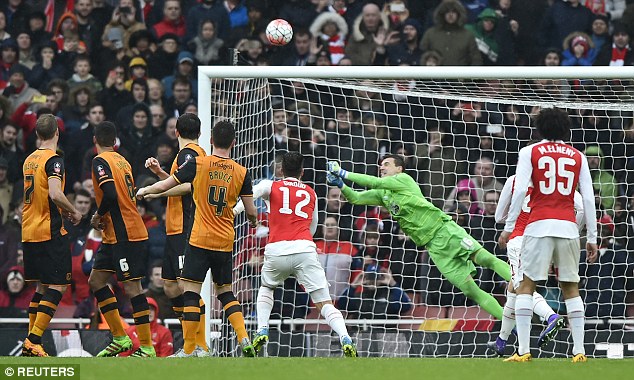In the relentless theatre of elite football, where narratives are often penned by the final whistle, Arsenal has recently begun scripting a rather dramatic habit: the late goal. What was once perceived as a sporadic stroke of luck or a desperate Hail Mary is now emerging as a calculated, defining characteristic of Mikel Arteta`s squad. This isn`t merely about snatching points at the death; it`s about a profound shift in resilience, tactical depth, and perhaps, a subtle psychological warfare waged against their opponents.
The Newcastle Narrative: A Case Study in Persistence
Consider the recent fixture against Newcastle United – a game that encapsulates this burgeoning trend. Trailing 1-0 for a significant portion of the match, Arsenal found themselves navigating the familiar labyrinth of a determined, defensive opponent. Newcastle, having scored from a set piece via Nick Woltemade, settled into a low block, ceding possession and daring Arsenal to break them down. For nearly an hour, the script seemed predictable, hinting at a frustrating stalemate or, worse, a defeat.
Yet, Arsenal persisted. Their sustained pressure, amounting to a significant number of shots and expected goals, eventually culminated in Mikel Merino`s equalizer in the 84th minute. This wasn`t a fluke; it was a reward for relentless offensive commitment. The subsequent winner, a decisive header from Gabriel in the 96th minute off Martin Odegaard`s inswinging set piece, solidified the comeback. This sequence of events wasn`t just a victory; it was a statement. It demonstrated not only a refusal to yield but also a strategic mastery of dead-ball situations under intense pressure.
Arteta`s Architects of Resilience: Depth and Tactical Nuance
This phenomenon extends beyond a single match. Arsenal`s ability to conjure goals in the dying minutes has been observed across various competitions. An equalizer against Manchester City in stoppage time, and two crucial goals after the 70th minute in their UEFA Champions League opener against Athletic Club, all underscore a consistent pattern. Crucially, a common thread linking these dramatic turnarounds is the impact of high-quality substitutions.
- Gabriel Martinelli and Leandro Trossard: Instrumental with a goal and an assist each in Bilbao.
- Eberechi Eze: Providing the assist for Gabriel`s equalizer against City from the bench.
- Mikel Merino and Martin Odegaard: Making their decisive contributions off the bench against Newcastle.
This effective utilization of the bench is not accidental; it is a direct consequence of Arsenal`s aggressive transfer strategy in recent seasons. The club has invested significantly in cultivating a deep squad, ensuring that tactical adjustments and fresh legs can genuinely alter the complexion of a game. This depth allows Arteta to introduce players who can maintain the team`s intensity or inject a different dynamic, turning potential draws or losses into victories. It’s a testament to planning, not merely good fortune.
The Psychological Edge: A New Arsenal Mentality
Beyond the tangible points earned, these late goals carry immense psychological weight. For Arsenal, each comeback victory reinforces belief, strengthens team cohesion, and cultivates an unwavering conviction that victory is attainable until the final whistle. This shift is particularly significant for a club that, in prior eras, occasionally faced criticism for lacking a certain “clutch” gene under pressure. The current iteration, however, seems to relish the challenge, embodying a new, steely resolve.
Conversely, for opposing teams, facing Arsenal now carries an added layer of apprehension. Holding a slender lead against the Gunners is no longer a comfortable position; it`s a precarious one. The knowledge that Arsenal possesses the capability to strike late can subtly erode an opponent`s confidence, inviting errors and creating a palpable sense of anxiety on the pitch. It`s a subtle yet potent form of psychological warfare, often decided in the final minutes.
Implications for the Title Race and European Ambitions
In the fiercely competitive Premier League, where margins are razor-thin, every point is invaluable. Arsenal`s newfound proficiency in securing late goals ensures they remain firmly entrenched in the title race, even when circumstances are challenging. These dramatic wins keep them within touching distance of league leaders and demonstrate a championship-calibre mentality. It suggests a team capable of weathering storms and seizing opportunities, a non-negotiable trait for any title contender.
Similarly, in the UEFA Champions League, where fine margins dictate progression, this resilience is paramount. The ability to find a way to win, even when not at their free-flowing best, bodes well for navigating the knockout stages against Europe`s elite. It underscores a tactical maturity that allows for adaptation and perseverance.
A Defining Trait for a New Era
Arsenal`s habit of scoring late goals is more than a statistic; it`s a narrative shift. It speaks to a squad meticulously assembled, a tactical philosophy expertly implemented, and a collective belief forged in the crucible of high-stakes football. As the season progresses, this characteristic will undoubtedly serve as a critical differentiator, marking Arsenal as a team not just to be watched, but to be truly reckoned with. The Gunners are no longer merely competing; they are consistently demonstrating an artful mastery of the eleventh hour, rewriting their own destiny one dramatic finish at a time.

